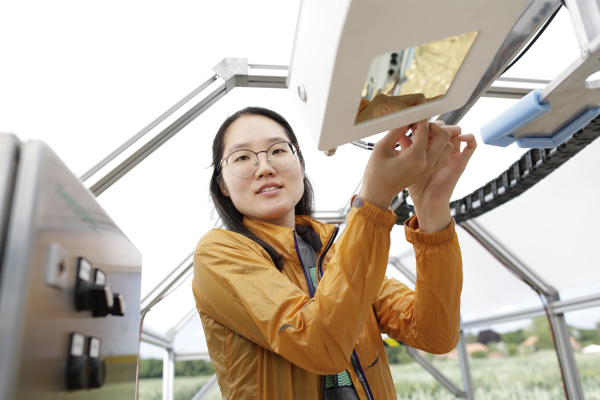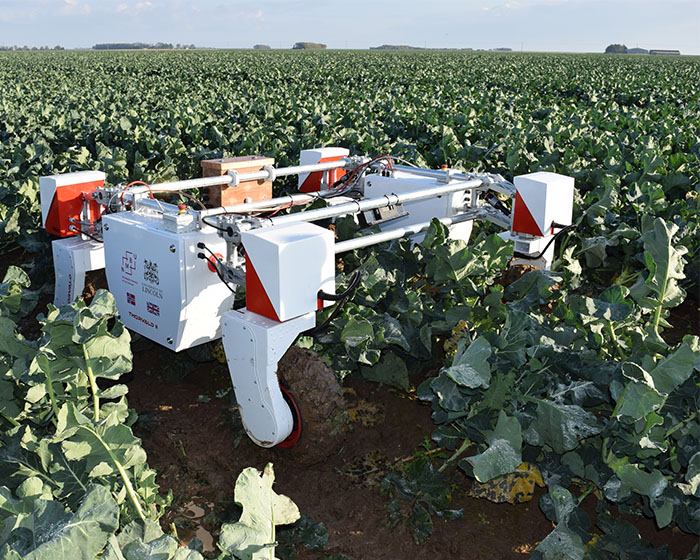Research Projects
An assessment of the viability of inter row cultivations for weed control in commercial narrow row crops in the UK
This project aims to explore how effective inter-row cultivation is in reducing long-term weed populations; whether they can be used to support the use of herbicides, and how the application of this machinery can be maximised within the principles of conservation agriculture.
Project Lead: Dr Shaun Coutts
Funder: Chadacre Agricultural Trust and Felix Thornley Cobbold Agricultural Trust
Hyper-NUE (EO4AgroClimate): Using hyperspectral imaging to estimate NUE in wheat
This project lays the foundations for next generation remote sensing of crops to determine nitrogen use efficiency (NUE) and associated canopy photosynthetic potential. We will develop a high-throughput novel hyperspectral (HS) analysis technique that directly extracts biological meaningful data from leaves and canopies at different scales, from leaf clip-on sensors, cameras mounted on field robots, and/or drones and satellite earth observation.
Project Lead: Dr Oorbessy Gaju
Co-Investigator: Simon Pearson
Funder: Science and Technologies Facilities Council
UKRI AI Centre for Doctoral Training in Sustainable Understandable agri-food Systems Transformed by Artificial INtelligence (SUSTAIN)
SUSTAIN imagines a system where data-driven AI transforms the production of crops (selective harvesting and weeding through precision agriculture) and raising of animals (livestock monitoring, reducing animal GHG emissions and improving animal welfare); enhances plant and animal breeding (AI informed genomics); stabilises supply chains (mechanism design and agent-based modelling); reduces food waste and loss (supply and demand matching) and enables fairer sharing of economic gains and understanding of environmental impacts (ethical and trustworthy AI). All the underlying methods need to be understandable by people so that decisions are trusted (explainable AI).
Project Lead: Professor Simon Parsons
Co-Director: Professor Elizabeth Sklar
Co-Investigator: Louise Manning
Funder: Engineering and Physical Sciences Research Council

/prod01/university-of-lincoln-cdn-pxl/media/responsive2017/research/Crop,Care.jpg )







